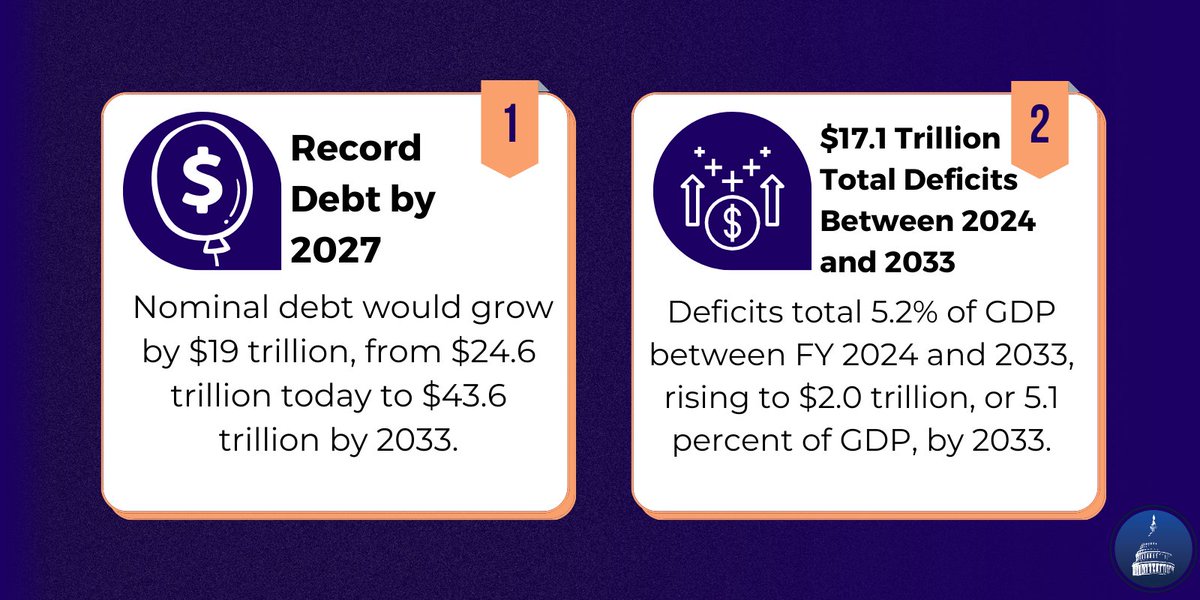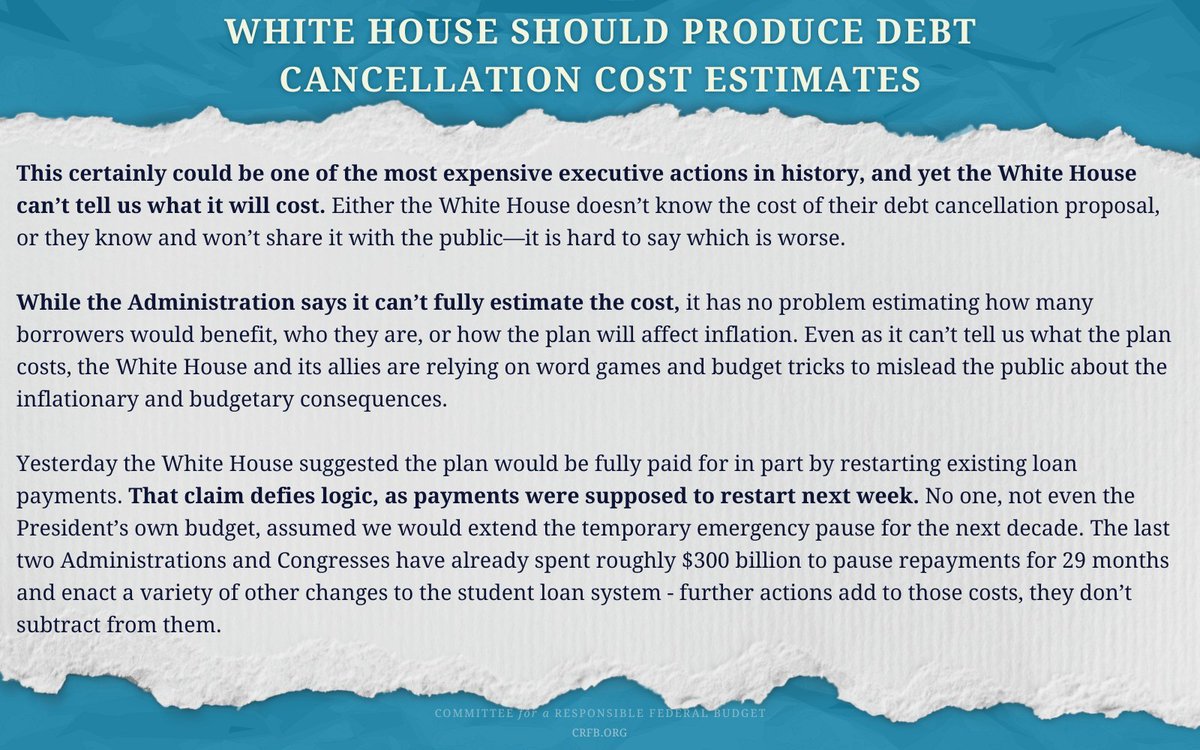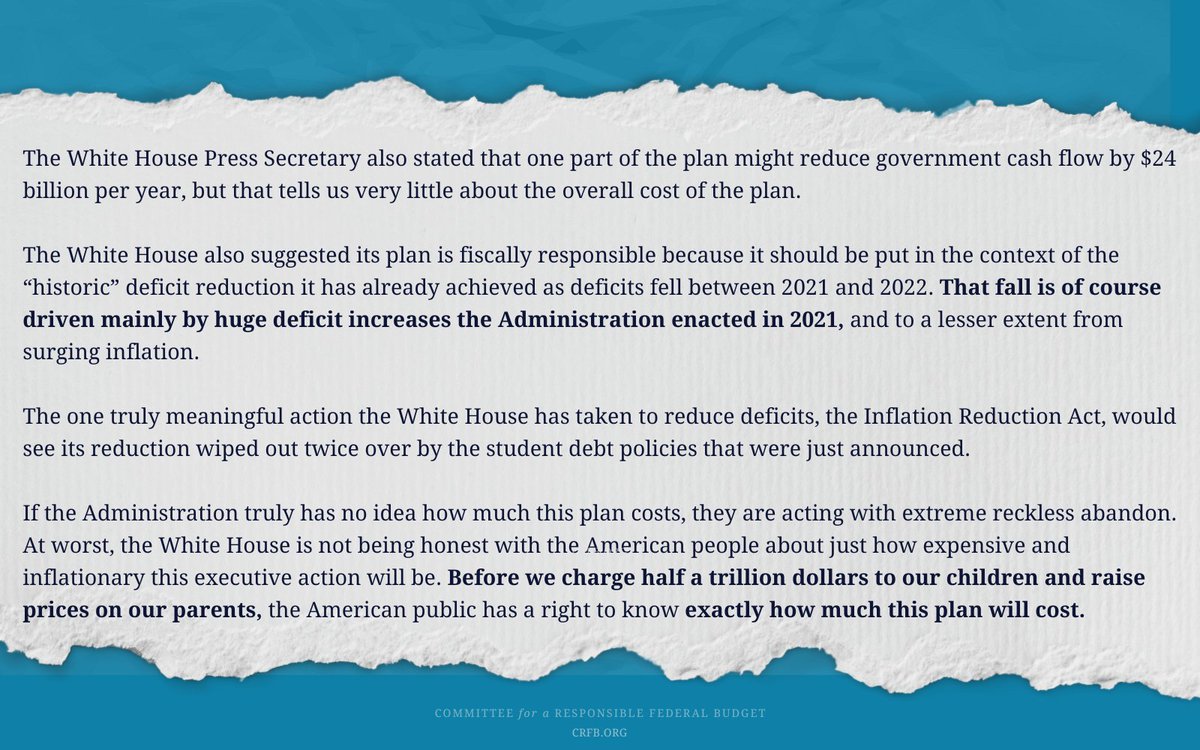
🚨 Later today, @USCBO Director Phillip Swagel will brief members of the House of Representatives on the Budget and Economic Outlook released last month – an encouraging step shining light on our fiscal challenges.
➡️ The following is a statement from @MayaMacGuineas:
➡️ The following is a statement from @MayaMacGuineas:

"Today’s budget briefing for Members of Congress is an encouraging step toward educating lawmakers with a shared set of facts on our fiscal outlook." crfb.org/press-releases…
"This comes at a critical time, and we have supported similar opportunities to increase transparency of our nation’s fiscal health in the past.
Lawmakers should not only attend, but also prioritize this moment for future budget seasons."
Lawmakers should not only attend, but also prioritize this moment for future budget seasons."
"There has been a startling lack of seriousness when it comes to budgeting in this country. Case in point: last year neither the House nor Senate Budget Committee – tasked with government’s most basic function – approved, debated, or even 𝘪𝘯𝘵𝘳𝘰𝘥𝘶𝘤𝘦𝘥 a budget."
"This is particularly disheartening at a time when debt as a share of the economy is projected to reach an all-time record in just five years.
Having the opportunity to hear directly from an expert, nonpartisan source like CBO gives Members a reprieve from the echo chambers..."
Having the opportunity to hear directly from an expert, nonpartisan source like CBO gives Members a reprieve from the echo chambers..."
"...they all too often find themselves in.
And, most importantly, it offers a chance to create honest and productive conversation surrounding #inflation, the #nationaldebt, and the solvency of our trust funds."
Read the full statement at crfb.org/press-releases….
And, most importantly, it offers a chance to create honest and productive conversation surrounding #inflation, the #nationaldebt, and the solvency of our trust funds."
Read the full statement at crfb.org/press-releases….
• • •
Missing some Tweet in this thread? You can try to
force a refresh















